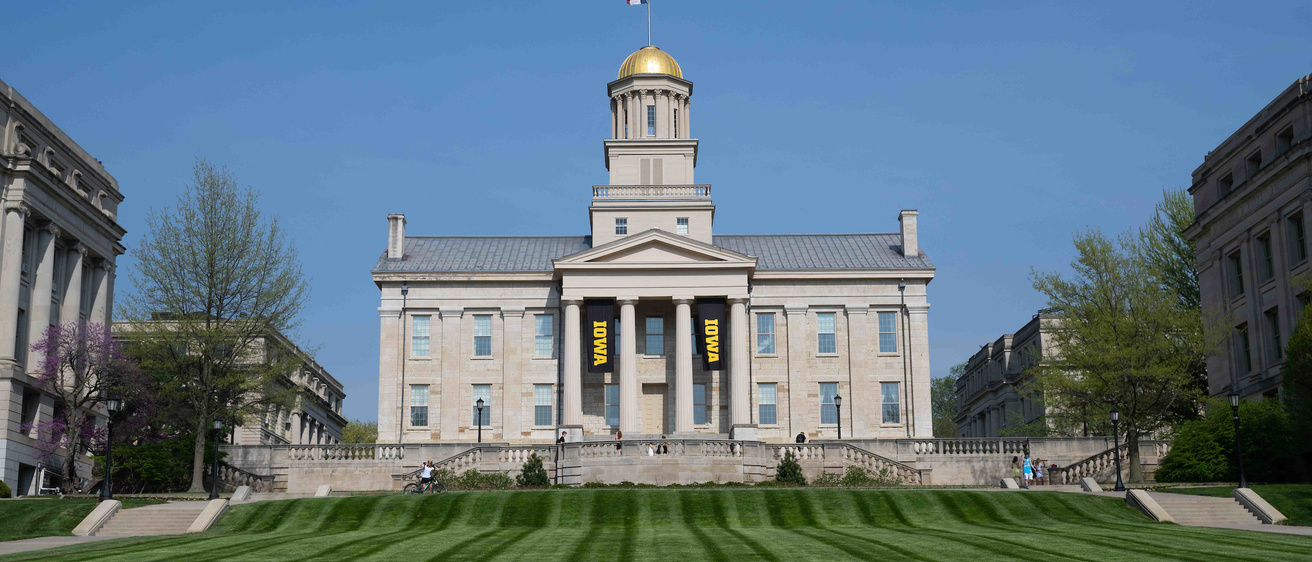Download the Strategic Plan for 2022-2027 (PDF)
Expand the university’s transformative impact on local and regional communities, the state of Iowa, and the world by leveraging its areas of distinction, the resources entrusted to it, and the collective talent of its people.
The University of Iowa is proud to hold the elective Engagement Classification from the Carnegie Foundation, which recognizes its commitment to have a positive impact on Iowa and other local, regional, and global communities through engagement and partnership. The university serves the people of the state of Iowa and beyond as a resource for education, health, culture, sustainable communities, and economic vitality. The university’s capacity to expand and strengthen these contributions will depend on its success in each of the strategic priority areas.
Objectives and Strategies
- Increase access to higher education in the state of Iowa.
- Minimize financial barriers to enrollment and progress to degree for qualified students.
- Cultivate partnerships with K-12 institutions and community colleges to enhance college-readiness and academic success.
- Pursue innovative degree and non-degree programs, including online programs, to meet the lifelong educational and career development needs of Iowans and beyond.
- Provide excellent patient care and services for Iowans and the world.
- Meet the growing community demand for services by increasing patient access.
- Grow clinical programs of excellence to differentiate UI Health Care.
- Improve UI Health Care’s ranking as a destination academic health system that optimizes the current standard of care and advances patient care.
- Build high functioning interprofessional health care teams to ensure the highest quality of care for patients.
- Expand opportunities and support for students, faculty, and staff to engage in mutually beneficial partnerships with communities across Iowa and the world, including those with underserved populations.
- Bolster community partnerships in areas of institutional excellence—including health, arts and cultural programming, sustainability, entrepreneurship and business development, policy leadership, well-being and mental health, and others—to positively impact communities in Iowa and advance the university’s mission around the world.
- Strengthen and expand opportunities for students to support communities through community-engaged coursework, service, and research.
- Support and recognize faculty and staff who teach community-engaged courses, conduct community-engaged research, and advise and mentor students in civic engagement.
- Enhance coordination and collaboration among students, faculty, and staff to provide clearer pathways for partnerships on campus and with communities across Iowa and beyond.
- Continue to exercise responsible and effective stewardship of resources, prioritize sustainability, and address the needs of stakeholders in the state of Iowa and beyond.
- Further integrate sustainability into the university’s teaching, research, and public engagement missions as well as its operations.
- Support a culture of innovation, entrepreneurship, and collaboration that contributes to economic development in Iowa communities.
- Identify growth opportunities for existing and/or new programs that address student, societal, and/or workforce needs.
- Identify and address opportunities to strengthen operational efficiencies and effectiveness and to maximize resource utilization.
- Enhance and coordinate communication to better understand the emerging needs and priorities of stakeholders and also to more effectively represent the university’s impact as an extraordinary resource for leading-edge research, education, health care, culture, and economic vitality.
- Identify and promote campuswide best practices in communication with stakeholders to ascertain community needs.
- Enhance communication of UI research that impacts the state and nation.
- Evaluate strategies to coordinate campuswide content production, messaging, and advertising.
- Evaluate content distribution platforms to determine the most effective forms of external and internal communication.
- Provide resources for colleges and central administrative units to produce content and distribute simultaneously within the institution to maximize content reach and frequency.
